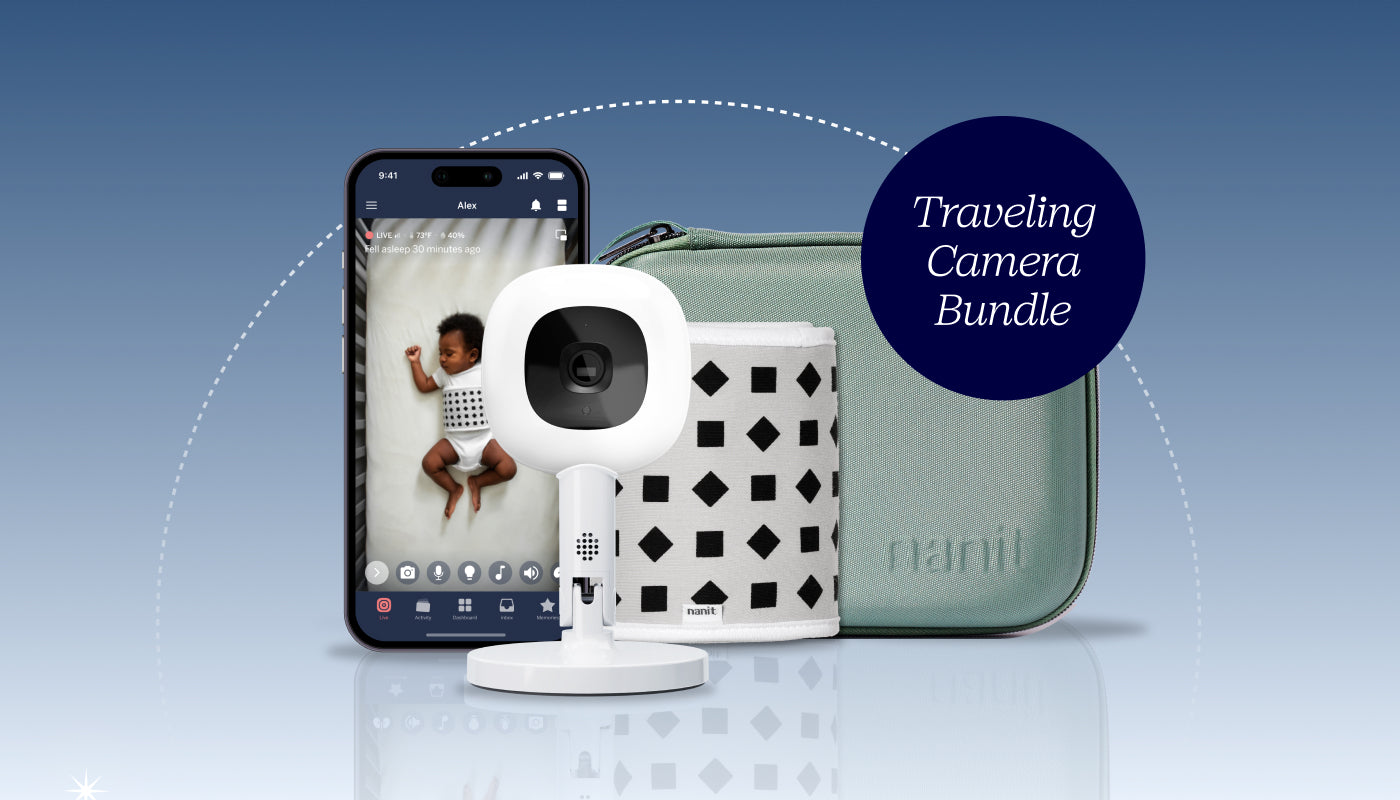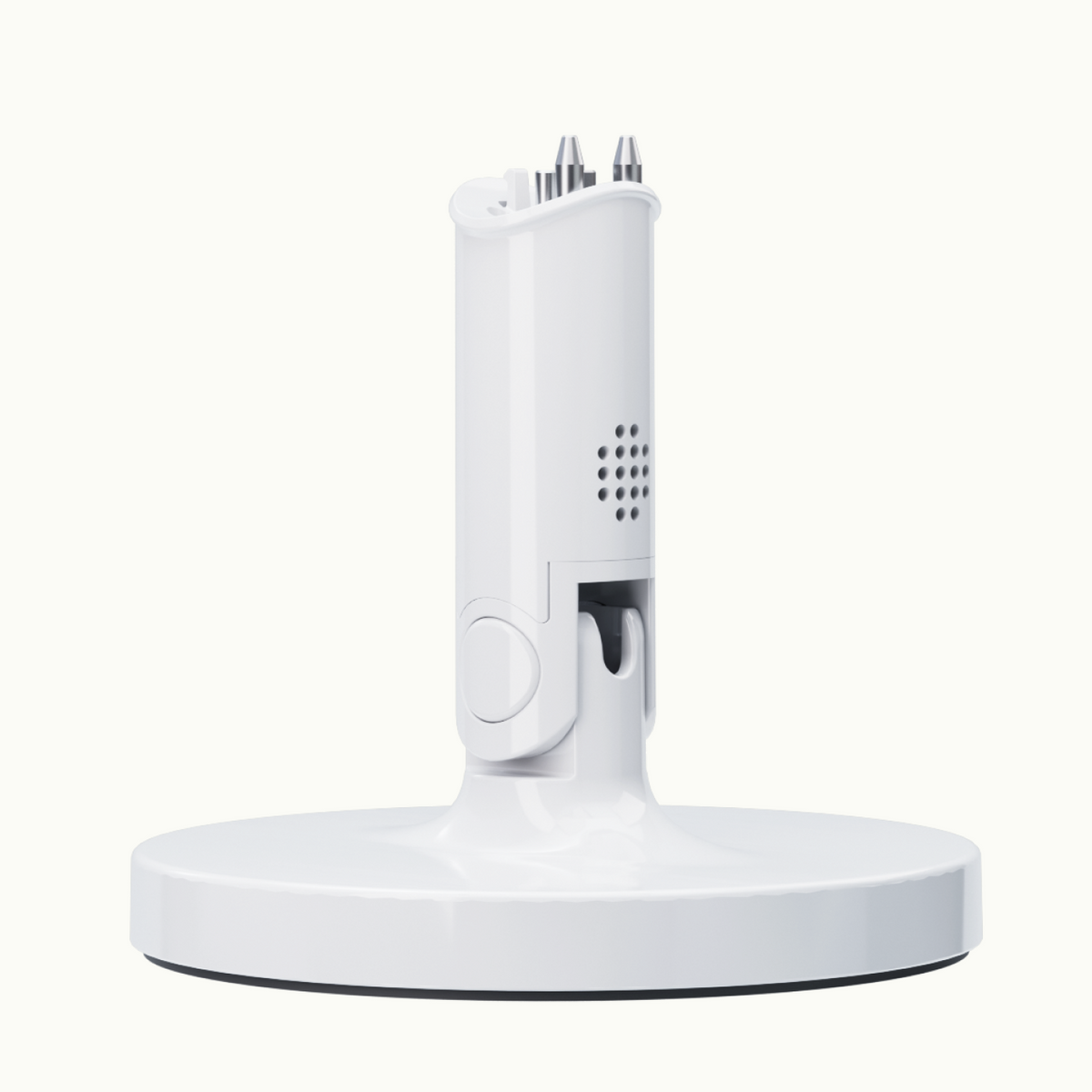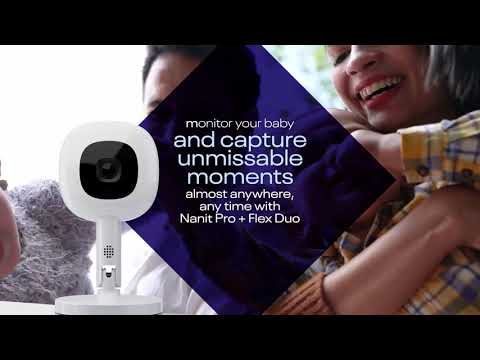When you’re expecting a baby, people shower you with gifts, advice, and offers of help. Once your baby arrives, there’s a bigger flurry of support. But after a while the hubbub…dies away. And while there's certainly plenty of joy, things can feel lonely and overwhelming as well.
At Nanit, we’re deeply committed to supporting parents through the postpartum time and beyond, finding ways to nurture parents’ physical recovery and mental wellbeing. It’s why we co-hosted the recent Redefining Postpartum event where an inspiring panel of leaders in the motherhood, health, and wellness fields came together for an honest conversation on the highs and lows of motherhood, physical and mental recovery, and the products that help make life easier.
The four panelists included:
- Megan Roup, fitness expert, and founder and creator of The Sculpt Society
- Bri Obaseki, Nanit super user and digital creator
- Brandi Jordan, newborn care and pediatric sleep specialist and postpartum doula
- Allessandra Torresani, actress, creator, and mental health advocate

The big takeaway from the day? As parents, we need to talk about the hard things as much as we do about the good ones. Because when we ask questions, share feelings, and are honest about our experiences, we remind each other that we’re not alone on this parenting journey.
Here are some of our favorite bits of wisdom from our Redefining Postpartum Panel.
You may—or may not—love your pregnant body.
“I worked on my body image throughout my early 20s, and I went into pregnancy thinking I could handle all the changes. But a lot of those old feelings came up again and I really had to work on my internal dialogue as my body was growing and changing. And honestly, I didn’t love being pregnant which, as I vocalized more, more women were like, ‘I didn't really like it either.’ And that was comforting because it felt a little shameful that I was not loving the experience. And then postpartum, you’re in this vulnerable stage of not feeling like yourself.”
- Megan
But it can help to celebrate your body for what it is and does.
“After you have a baby everyone’s journey is different. And there’s this snapback culture. Someone’s body might…the day after they pop the baby out, they’re back in their pre-pregnancy jeans and if that’s not you, that is okay! Get the clothes that fit your body where it’s at. And appreciate your body for what it is able to do. Even if you got 2 oz of breastmilk, celebrate that win.”
- Bri
“I had this super cute big belly. I felt really amazing and super confident. I loved having my belly out. I was in my Rihanna moment. Postpartum, I missed the bump. It was my favorite accessory. But then I was like, Ok, I love my body and everything it does for me. And also as someone who had multiple miscarriages, I just have to ground myself and be so grateful for what my body did. My body gave me my rainbow baby and blessed me with a healthy baby that I got to carry full term. Navigating the aftermath of birth and carrying a child can be a lot on your psyche especially when you live in a society that is so accustomed to telling women what they should do and what they should look like.”
- Bri
Give yourself time to adjust to your new identity as a mom.
“When you have a baby, you’re shifting who you are. Like, you’re a mom of one, you’re a mom of two, you now have a family of five. Every time [you’re pregnant], there’s something in you that has to change and I think we undermine the work that goes into doing that.”
- Brandi
“I always like to say that the birth of my daughter was the rebirth of me. You can try to ‘go back to before baby,’ but there is no going back to before baby. You have a new identity and that’s okay. You’ll learn how to embrace and rediscover who you are as this new identity.”
- Bri
Use the fourth trimester to connect with and care for your baby—and yourself.
“We need to look at that fourth trimester not as bouncing back, but as a way to fill our emotional cup back up, to get more grounded in our body. It’s not about getting back to looking a certain way, but to actually feeling more connected to yourself and shifting the narrative around postpartum wellness.”
- Megan
It’s okay to have less-than-rosy thoughts postpartum.
“Postpartum, I had intrusive thoughts that I didn’t want to vocalize because I thought, If I vocalize this, they’re going to lock me up and take away my baby. But when you share those thoughts with other moms, it feels so much better to let it all out...
...Because the thoughts, they’re all in your head, and as soon as you give them light and say them out loud, [the weight] disappears. So, the most important thing you can do is to be vulnerable with your friends, with your family, with doctors. Be open, be honest because there’s no judgment.”
- Alessandra
Build up your postpartum support systems.
“Find community. Look at who shows up [after your baby is born]. Your community will show up. In person, virtually, whatever it may be. And make sure you have that person that you can be open and honest with.”
- Alessandra
“There’s a lot of talk specifically for women of color about the horrors of having children and I never talk about those things on panels because you get to have joy in thinking about what’s going to happen for you. You don’t have to imagine the worst. You get to have the [excited] feelings, like, I can't wait to see what my baby’s face looks like, you get to enjoy those things. Also, when you pick the people in your community who see you and validate you, you’re going to have the best postpartum experience. Make sure you have an environment set up for success.”
- Brandi
“Find the things that help ease your mind in parenthood. There are so many stressors, so pay attention to whatever it is that helps you feel a little less anxious, a little more comfortable, a little more confident in your journey...
...For me, that’s my Nanit and using the Breathing Band every single night. Let’s find tools that help us navigate and relieve the stress of parenting day to day.”
- Bri
The hard times don’t last forever!
“The time that you have with your baby is so short lived. Enjoy them being tiny and wanting to be on you and all those things. At the same time, when it’s really difficult, know that that will pass as well. It’s hard to see the light at the end of the tunnel when you’re in it. But know: Your baby is eventually going to sleep, your baby will be able to eat in some form or another. It feels like those hard times are going to last forever, but they will pass.”
- Brandi
Your postpartum journey is yours.
“My number one piece of advice is: Don’t compare yourself, your journey, your baby to anyone else. Everyone's going to post milestones of what their baby is doing and you’ll be like, What am I doing wrong? You’re not doing anything wrong. Your journey is yours for a reason, so trust your intuition. And comparison is the thief of joy, so protect your joy.”
- Bri



